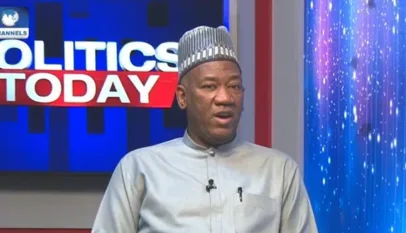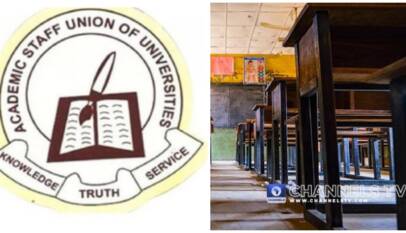The Nigerian social media space has reacted with widespread uproar to a report of the graduation of the vice presidential candidate of the Labour Party in the 2023 election, and founder of one of Nigeria’s leading private universities, Yusuf Datti Baba-Ahmed, from Queen Mary University, United Kingdom.
Datti-Ahmed’s Baze University prides itself as one of Nigeria’s best citadels of learning
The news follows a similar development last year when Baba-Ahmed’s daughter, Taslim, graduated from the University of Reading, another UK institution.
While many Nigerians took to social media to congratulate the family, others questioned why the children of the owner of one of Nigeria’s leading private universities chose to pursue their higher education abroad, rather than at the very institution their father founded and continues to promote.
Baze University, established in 2011, has positioned itself as a provider of high-quality tertiary education in Nigeria, with state-of-the-art facilities and a mission to elevate academic standards in the country. Its motto, “Learn to Live,” emphasizes academic excellence and global competitiveness.
However, the decision of Baba-Ahmed’s children to study abroad has raised eyebrows. Critics argue it underscores a lack of trust in the Nigerian education system—even by those who profit from it. One commentator on X (formerly Twitter) wrote, “This is what happens when the producers themselves don’t consume what they sell. If Baze University is good enough for Nigerians, why isn’t it good enough for the owner’s children?”
The incident has rekindled a broader debate about the credibility of Nigeria’s educational institutions and the trend among elites to send their children abroad for studies, even while advocating reforms at home.
Some see it as a reflection of a larger societal issue—where rhetoric about national development often clashes with personal choices. “The most lucrative business in Nigeria is not oil or tech—it’s lies,” another user posted online, criticizing what they called a disconnection between public messaging and private actions.
Despite the backlash, others argue that studying abroad is a personal choice and may not necessarily reflect the quality of local institutions. They point out that many Nigerian students attend foreign universities for global exposure and specialized programs not readily available at home.
Neither Yusuf Datti Baba-Ahmed nor Baze University has issued an official statement on the matter.
As the conversation continues, the episode has sparked a deeper reflection on what it truly means to have confidence in Nigerian-made systems—and whether actions speak louder than branding.
































